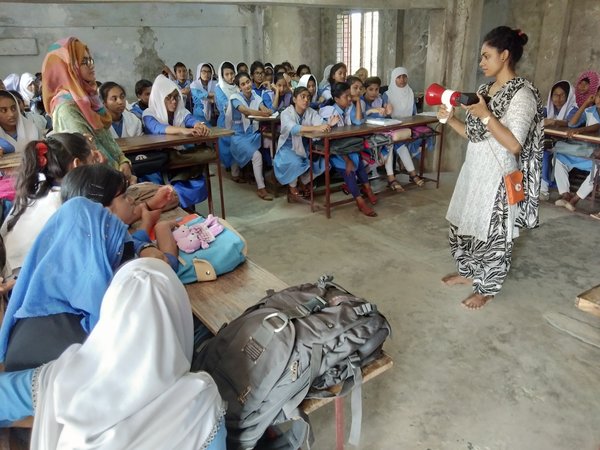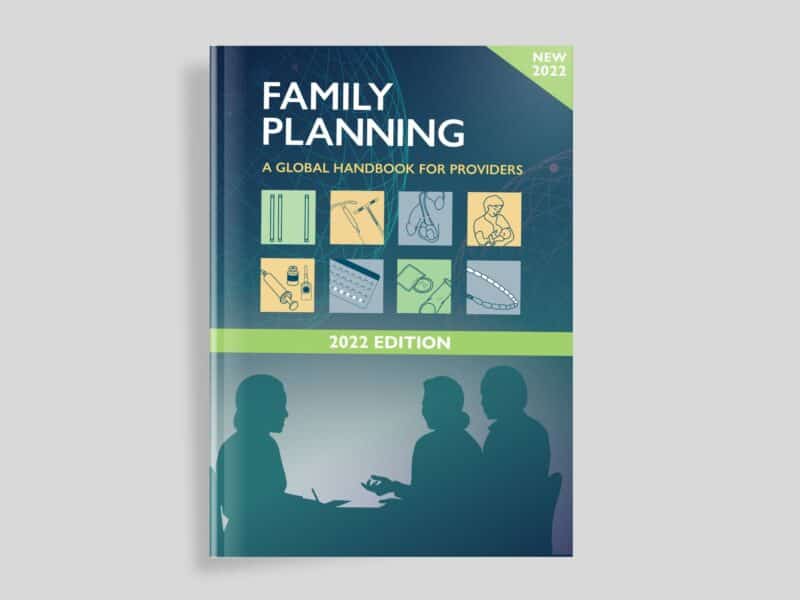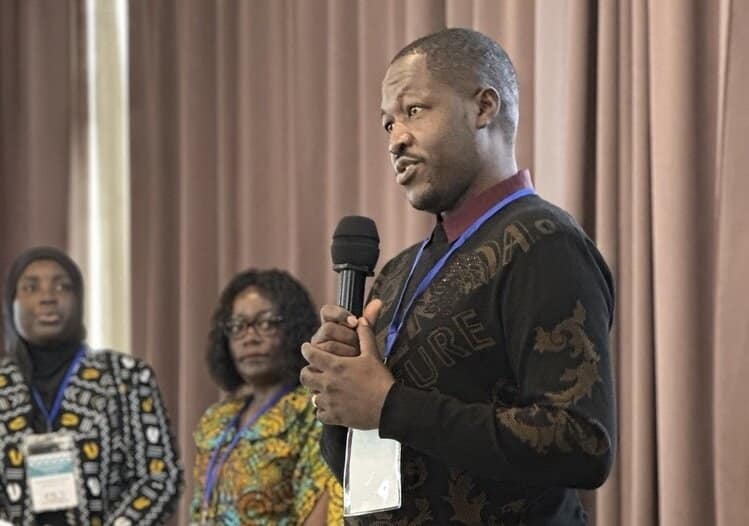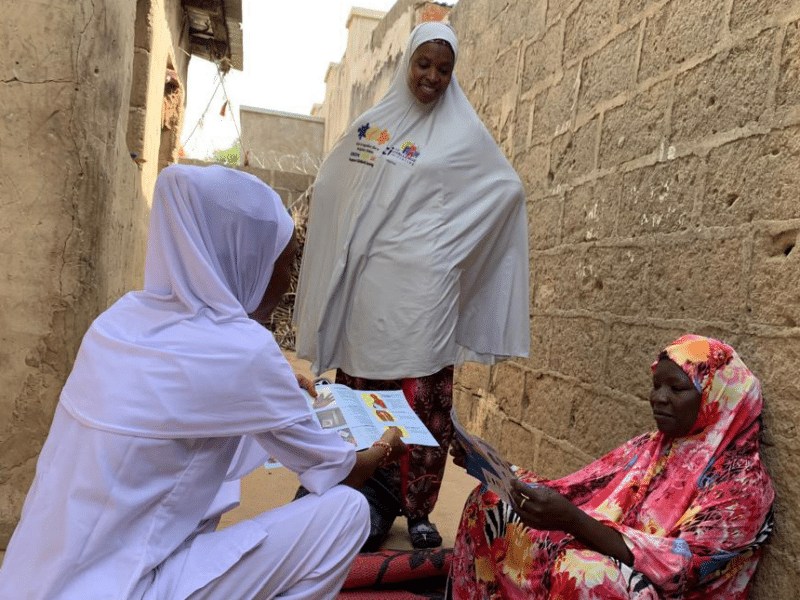The tough questions go into the “Question Box.”
“Is it normal to have your first period late or after you are 15?”
“Lately, I have become very emotional. Why is it happening?”
“What problems will girls face if they have children before they are 20?”
Ujjiban, the USAID-funded social and behavior change project led by the Johns Hopkins Center for Communication Programs in Bangladesh, is aiming to make conversations about sexual and reproductive health easier and less taboo for adolescents, giving them the information they need to make healthy decisions.
As part of that effort, in early 2018 the project began visiting kids ages 12-17 in school to help provide information that their parents are often uncomfortable sharing themselves. In nine months, they have already been to more than 75 Bangladeshi schools and talked to more than 6,000 students.
The aim is to have open and honest discussions about puberty, reproductive health and menstrual hygiene – which are not the easiest conversations to have, particularly in a conservative Muslim country. The classes are co-ed, hence the “Question Box,” a discreet place for young people to anonymously ask about their more sensitive concerns.
Ujjiban staff take those questions back to their offices and consult experts for answers. Videos of many of their responses have appeared online and, in some cases, have been played back in schools during repeat visits. “We’re trying to make it entertaining for them and make it as interesting as possible,” says Patrick Coleman, who leads the project in Bangladesh.
“We want to break some of the taboos around talking about that kind of stuff and empower them to talk about what is on their mind,” he says. “Our goal is to help them understand what is going on with their bodies and their lives and get them accurate information they may not get anywhere else.”
Alongside the question box, there are skits, an interactive game and essay and quiz competitions. Ujjiban facilitators introduce the students to Young Time, Ujjiban’s radio program which is centered around adolescent health and well-
being. They distribute SD cards that contain all episodes of Young Time as well as a portable radio and speaker to help facilitate the formation of student listeners clubs. Each school’s library also gets booklets that cover adolescent issues and answer many of the questions that Ujjiban got from the question boxes.
“We try to make it as interactive as possible,” Coleman says. “We’re trying to encourage this information flow as well as we can.”





